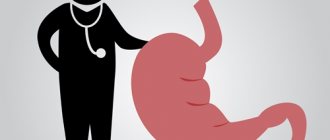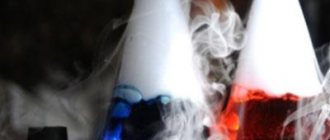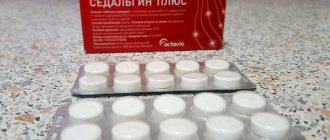Feelings of aches throughout the body and pain in the joints occur due to poisoning with poor-quality food, overdose of a drug, intoxication with vapors of gaseous substances, contact with pesticides or household chemicals. In addition to pain and malaise, nausea, bouts of vomiting appear, and bowel movements become more frequent, turning into diarrhea. After using detoxification therapy, symptoms disappear and recovery occurs.
The effect of poisoning on the body
By poisoning in the general understanding of this word, doctors usually mean a local or systemic disorder of the vital functions of the human body, formed as a result of the ingestion of a toxin.
There are quite a lot of toxic agents that cause intoxication - these are pesticides, acids, metals, alkalis, medications, food contaminated with bacteria, viruses and fungi, etc. The ways of their penetration into the body are also varied - they can reach humans through inhalation, oral administration, injection and even through the skin.
What exactly causes body aches during poisoning ? The main reasons for the formation of this symptom are considered to be:
- Accumulation of inflammatory and pain mediators during the development of the body’s corresponding reaction to toxicity;
- Direct effects of toxins on nerve endings;
- Secondary reverse reaction, as a result of dehydration, loss of nutrients and minerals.
You might be interested.
Oxygen poisoning (hyperoxia) Body aches manifest after toxic agents begin to penetrate the systemic bloodstream or have a pathological effect on the central nervous system, peripheral nervous system, vascular tone - the breakdown of glycogen in the muscles and partial breakdown of protein muscle structures cause both the occurrence and increase in pain syndrome .
In addition to aches, the following symptoms are characteristic of various types of poisoning::
- Dyspeptic disorders of the gastrointestinal tract, including vomiting and diarrhea;
- Respiratory, kidney, and liver disorders;
- Cardiovascular pathologies - from changes in blood pressure and tachycardia to collapse;
- Increased body temperature;
- Disorders of consciousness, neurological manifestations;
- Other symptoms
Other symptoms
Poisoning is often accompanied by vomiting, and due to a lack of calcium, titania develops - a condition caused by strong muscle contraction like cramps. Another sign of intoxication is diarrhea, after which the body becomes severely dehydrated. This leads to circulatory problems due to blood thickening. Against the background of the accumulation of inflammatory proteins in the tissues, a corresponding reaction develops, manifested by pain in the joints after poisoning. The following symptoms additionally appear in the clinical picture:
Headache often occurs after intoxication of the body.
- headache;
- temperature increase;
- chills;
- dark color of urine;
- tachycardia;
- nausea;
- bloating;
- decreased blood pressure;
- general weakness.
Return to contents
Products that cause hammer poisoning
Food poisoning, with accompanying symptoms of intoxication including body aches, can be caused by a huge variety of foods and drinks. The most well-known food groups that cause poisoning:
- Eggs . Stale chicken, quail and other types of eggs can cause food poisoning even in small quantities and after heat treatment;
- Meat and fish . The second most dangerous group of food intoxication is usually associated with improper processing of this product (lack of full frying or boiling) or non-compliance with the technical process of salting, smoking, etc.;
- Milk and dairy products . Pure and unprocessed milk spoils quite quickly even when stored in the refrigerator. The same applies to cottage cheese, sour cream and other products made from such raw materials;
- Sausages, sausages, ham and other semi-finished products . Of particular danger is not store-bought products that have undergone the necessary processing as part of the production cycle (although poisoning still occurs when storage conditions are violated and the expiration date has expired), but homemade products, for example, liver sausage, raw ham, “bloody meat”;
- Other products . Pastries, cream-based pastries and cakes, seafood, mushrooms, ready-made salads with mayonnaise, sushi, etc.
Do you still think that it is impossible to cure your joints?
Judging by the fact that you are reading these lines now, victory in the fight against inflammation of cartilage tissue is not yet on your side.
Have you already thought about inpatient treatment? This is understandable, because joint pain is a very dangerous symptom, which, if not treated in a timely manner, can result in limited mobility. Suspicious crunching, stiffness after a night's rest, the skin around the problem area is stretched, swelling in the sore spot. All these symptoms are familiar to you firsthand.
But perhaps it would be more correct to treat not the effect, but the cause? We recommend reading the article about modern methods of treating joints. Read the article >>
Body aches and weakness without fever are the main causes
As mentioned above, poisoning can be caused by various bacterial, viral or fungal infections, chemicals, poisons of synthetic, animal and plant origin. These exogenous toxins cause a number of pathological manifestations in the human body.
Body aches are a clinical symptom of the first period of a generalized reaction in the initial reactive stages of poisoning. Depending on the specific pathological agent affecting various parts of internal organs and systems, the physiology of the process itself differs. The three main causes of muscle and bone aches in this context include :
- The reverse reaction of acute loss of nutrients and minerals during rapid dehydration with a slowdown in metabolic processes in the cellular structures of muscles;
- Direct toxic effect of a pathogenic agent on nerve endings;
- Consistent accumulation of special mediators in soft tissues, formed as a result of a strong inflammatory reaction.
In general, toxins have a negative effect on the peripheral and central nervous system, also affecting the tone of vascular structures. When pathogenic agents enter the systemic bloodstream through the gastrointestinal tract, the predominant modulator of the pain syndrome is the liquid contents of the veins, capillaries and arteries.
In addition to purely local reactions of narrowing, expansion or even collapse of the conductive structures of the blood flow, toxins carried by the blood during the nutrition of soft tissues cause the breakdown of individual protein muscle structures, as well as the breakdown of glycogen, loss of electrolytes and glucose, which together leads to the formation of a characteristic pain syndrome all over the body.
Another reason why the body aches without fever is oxygen deficiency , which nourishes muscle structures through the bloodstream due to the accumulation of ketone bodies during the breakdown of fats against the background of an acute lack of glucose.
As clinical practice shows, body aches and weakness disappear after some time with the beginning of the active development of the second phase of the reactive period of poisoning, when the body, on its own or with the help of medicinal support, restores the electrolyte balance, reserves of glucose and other substances. In the latter case, acute localized pathological processes come to the fore, or the victim’s condition worsens, resulting in a toxic-septic systemic syndrome.
Is it possible to eliminate leg pain after drinking alcohol?
Having found out whether alcohol can cause leg pain, let’s figure out how the pathology is eliminated. The first thing to do is stop and stop drinking. Next you need to seek medical advice. Only a specialist can prescribe the necessary treatment and establish the real reason why your legs swell after alcohol, or other uncomfortable conditions occur in the limbs.
You won’t be able to heal your legs on your own if they have given up alcohol, but you can alleviate the general condition. The following actions are required:
- purchase and wear special support stockings that can regulate the functioning of blood vessels;
- lie down with your legs raised and a pillow or folded blanket under them;
- take baths with calendula infusion or sea salt;
- drink less liquid and completely eliminate alcohol;
- eat more greens, fruits, cereals and foods that contain potassium;
- sign up for swimming.
If the numbness of the limbs has not gone too far, the doctor will most likely prescribe vascular drugs such as Troxevasin or Lyoton. Massage helps get rid of numbness and pain. The massage is performed with stroking movements, with careful transitions to the most painful areas. It is advisable to perform the procedure using ointments with a warming effect, for example, Bryonia ointment.
What to do if your whole body ache due to poisoning
First of all, in case of poisoning, it is necessary to clearly identify the probable toxic agent that caused the symptom complex - this procedure will make the treatment as effective and targeted as possible.
In case of a mild form of toxicity and the absence of life-threatening and health-threatening manifestations, therapy can be carried out at home.
In cases of severe forms of poisoning with the development of obvious neurological symptoms, respiratory, renal, cardiovascular and other insufficiencies, hospitalization in a hospital is necessary.
Possible actions may include:
- Abundant gastric lavage (with soda solution), taking enterosorbents and laxatives. In case of alkali poisoning, laxatives are prohibited. In case of acid toxicity, soda should not be used (it is replaced with milk). If affected by cauterizing poisons (including organophosphorus compounds), it is undesirable to perform manual gastric lavage followed by inducing artificial vomiting;
- Cleaning the skin from surface poisons using a cotton swab;
- Immediately transport the victim from the contaminated area to fresh air;
- Carrying out artificial respiration and chest compressions in critical cases;
- Monitoring the condition of the victim until the medical team arrives.
Restoration of the body
After the most acute manifestations of poisoning that threaten the life or health of the victim have been relieved and the first phase of the reactive period has ended, the stage of recovery of the patient’s body begins. Depending on the type and severity of intoxication, it may include :
- Stabilization and support of water-salt and electrolyte balance by oral administration of special solutions (for example, Regidron) or using classic droppers with the necessary liquids (saline, glucose, etc.);
- Symptomatic therapy to eliminate residual unpleasant manifestations of intoxication;
- Forced diuresis;
- Physiotherapy;
- A special diet that excludes any food that can additionally burden the gastrointestinal tract and internal organs;
- Reducing the risk of complications by introducing various protectors (hepatoprotection, cardiovascular protection, and so on);
- Restoring beneficial intestinal microflora by taking probiotics and prebiotics;
- Other actions as necessary.
Victor Systemov – expert of the 1Travmpunkt website
We most often experience painful sensations in the soft tissues of the body when we get the flu. Less often, the body aches due to food poisoning or parasitic infestation.
Some home measures help relieve pain during intoxication. Do you know what not to do so as not to worsen a person’s condition?
Rehabilitation period
After poisoning, it is necessary to completely remove toxic substances from the body and restore the functioning of the gastrointestinal tract. Adsorbent drugs - Smecta, Regidron, are recommended to be taken over the next week after the symptoms of intoxication have stopped.
In order to prevent re-poisoning and severe stress on the gastrointestinal tract, it is necessary to change the diet. A person who has suffered poisoning is advised to avoid heavy foods.
Drinking alcoholic beverages, coffee and strong tea is prohibited. Until the feeling of aching goes away completely, it is worth temporarily limiting physical activity.
To relieve pain in muscles and joints, which may remain for some time after poisoning, it is recommended to use local spectrum drugs - ointments, gels and creams.
They are applied directly to places on the body where the unpleasant symptom manifests itself most acutely. The most common drugs of this drug group are Vipratox, Deep-Heat, Apizartron.
To restore beneficial intestinal microflora, washed out during severe diarrhea and vomiting, it is recommended to take medications containing bifidobacteria, for example, Linex, for a week. In addition, it is advisable to consume as much fermented milk products as possible to restore the functioning of the gastrointestinal tract.
Poisoning is a difficult test for the body, be it an adult or a child. The functioning of organs is disrupted. In addition to the main symptoms: vomiting, diarrhea, lightheadedness, high fever is added, which has a direct effect on the occurrence of aching bones.
Aches as a manifestation of poisoning
In case of any poisoning, the body reacts by activating its protective functions. At first, nausea and vomiting with diarrhea usually occur. This is how the body is freed from poisons, bacteria, and toxins. If harmful substances do penetrate the blood, they spread throughout the body, poisoning all organs and tissues. That's when muscle and joint pain appears.
From a physiological point of view, aching is perceived by a person as a feeling of tearing, stretching of muscles, bones, and joints. A sensation similar to a dull ache occurs in soft and hard tissues under various circumstances and diseases.
Lack of vitamins and microelements
DescriptionA growing organism needs building materials in order to grow higher and wider. They are proteins, fats, carbohydrates, acids, vitamins and microelements. A deficiency of the last two groups can cause leg pain:
- Lack of calcium or phosphorus leads to brittle bones. A child can get a crack in a bone or a fracture where a healthy child would get away with a bruise.
- Magnesium is responsible for many processes, but primarily for hematopoiesis and heart function. Magnesium deficiency leads to increased fatigue, night pain and cramps.
- Vitamins are needed for normal tissue growth, as well as for better absorption of microelements.
Causes of body aches during poisoning
In most cases, severe body aches are caused by the introduction of pathological microorganisms or their toxins into the body. Pain also occurs when excessive accumulation of lactic acid in the muscles after excessive physical effort. This feeling is well known to loaders and athletes.
Why do my arms and legs hurt?
The cause of aching limbs is a wide range of diseases known to infectious disease doctors, rheumatologists, and neurologists:
- Aching occurs when infected with certain types of worms. These helminths, fixing themselves in various tissues, produce harmful waste products - toxins. After poisoning, the muscles at the site where the parasites invaded begin to ache.
- Runners' legs hurt after lactic acid poisoning. The substance accumulates in the muscles when overexerted during competitions, as well as in beginners after intense exercise.
- A common cause of muscle aches in the body is excessive stress on the kidneys. They are responsible for removing uric acid from the blood. If the kidneys fail to cope with their function, waste accumulates in the joints, and then the legs hurt due to poisoning.
- Brucellosis is an infectious disease that affects the musculoskeletal system and nervous system. Pain in the legs occurs due to poisoning with toxins from Brucella bacilli. The causative agents of the disease are carried through the bloodstream, causing intoxication of the body. Even after treatment, deformation of bones and joints sometimes remains.
Body aches without fever after a forest tick bite. Most arthropods carry infections. The most famous of them is viral encephalitis. But not everyone knows about Lyme disease. The bacterium, which ticks transmit when they bite a person, after a few weeks causes body aches, pain in large joints, and a rash on the body.
Why does it twist muscles and joints?
When consuming foods that are not properly cooked or stored properly, vomiting and diarrhea often occur. A mild form of poisoning quickly passes after gastric lavage and taking sorbents.
The disease develops severely after pathogenic bacteria and viruses enter the stomach along with food.
The most common pathogens of intestinal infections are salmonella, Escherichia, staphylococcus, and rotavirus. Pathogens are transmitted through meat, dairy products, unwashed vegetables and fruits. Children become infected through toys and household items.
Symptoms of food intoxication vary depending on the type of pathogen and severity. But there are general signs of poisoning:
- pain, rumbling in the stomach;
- headache;
- continuous vomiting;
- elevated temperature;
- prostration;
- diarrhea and body aches;
- discharge of dark urine.
1–2 days after infection, the patient feels chills and blood pressure decreases. When poisoned, joints and muscles always hurt, regardless of the specific causative agent of the infection.
This is due to the fact that during diarrhea with vomiting, potassium, magnesium, and calcium are simultaneously removed from the stomach and intestines too quickly. Without these minerals, muscles and joints cannot contract at full strength. The elasticity of soft tissues decreases, the conductivity of nerve impulses is disrupted, which is manifested by pain.
Severe myalgia (muscle aches) signals the development of yersiniosis and dysentery. Continuous diarrhea and frequent vomiting naturally lead to dehydration of the body and the removal of vital microelements. The blood thickens and the joint fluid also becomes viscous, making it difficult to circulate. This is manifested by dysfunction, the appearance of pain in the joints of the lower and upper extremities.
Why does my lower back hurt?
Aches in the lower back muscles do not always appear immediately. Sometimes patients do not properly remove toxins when poisoned - they do not drink enough liquid or do not take Regidron and Smecta. As a result, vomiting and diarrhea stop, but the toxins remaining in the stomach are absorbed into the blood. Harmful substances accumulate, causing slow poisoning. At the same time, aches gradually appear throughout the body, and back pain occurs.
Why does the body ache?
Each of us has experienced flu symptoms - runny nose, cough, joint and muscle pain. With ARVI, the body aches after poisoning with toxins produced by viruses. Pain in the eyes and photophobia appear.
Similar symptoms occur with bacterial infections. The causative agents of the disease - staphylococci and streptococci - also produce harmful substances that negatively affect soft tissues. These are the causes of body aches in diseases such as follicular tonsillitis, pharyngitis, laryngitis. ENT infections occur with severe headaches and fever. Already at the very beginning of the disease, symptoms of intoxication increase - muscle and joint pain syndrome.
Leg failure after drinking alcohol
When a person drinks for a long time, numbness in the limbs can cause leg failure due to alcoholism. Atrophy of the lower extremities often occurs due to cessation of blood flow.
The main reasons why legs become swollen after drinking alcohol include:
- Vessels overflowing with fluid press on their own walls. The result of this action is a sharp increase in the size of the vessels with subsequent blockage of small capillaries. The blood flow is disrupted, which leads first to numbness, then to failure of the limbs;
- large veins dilate, which soon cease to function;
- After drinking alcohol, your legs first swell. The fluid accumulated in the vessels presses on the walls, causing pain, and ends with numbness or failure of the limbs;
- Calcium washed out of the body under the influence of excessive amounts of alcohol causes severe cramps, leading to leg failure.
If, after drinking an alcohol-containing drink, cramps of the lower extremities constantly occur, then the nerve fibers are damaged. And if you ignore this serious symptom, your limbs will fail.
First aid for body aches
Measures to help with food intoxication are aimed at ridding the body of harmful substances. In case of severe poisoning, home remedies are taken:
- Gastric lavage with soda solution (1 tablespoon of soda per liter of chilled boiled water). You can use a pale pink solution of potassium permanganate. You need to drink 2-3 glasses of liquid and induce vomiting by pressing your fingers on the back third of the tongue. Washing must be done 2-3 times until the wash water is clean.
- For the purpose of detoxification, the patient is given activated carbon, 4 tablets every 5 hours. The crushed tablets are mixed with water to obtain a suspension.
- To reduce the toxic effect of microorganisms, take Smecta sorbent.
- If after poisoning your bones ache and your temperature rises, you can take Paracetamol.
To prevent dehydration, frequent drinking of water is vital.
Every 15–30 minutes the patient should drink sweet tea, compote or alkaline mineral water. Doctors recommend using the pharmaceutical drug Regidron. The drug restores the volume of circulating blood fluid and its electrolyte composition faster than water. The product is sold in powder form. Before use, dilute with water.
Achilles tendon sprain or rupture
Description The Achilles tendon is the strongest tendon in the body. It is located on the back of the leg, from the heel and above. Alas, “the strongest” does not mean “iron”: this tendon is often subject to sprains. In the worst case, a rupture may occur.
Injuries to the Achilles tendon in children are almost always caused by external influences: a fall from a height, a sharp jump, or a blow.
The pain increases gradually and is located above the heel. The pain is nagging, of medium intensity, causing discomfort when walking.
The child cannot stand on his toes. A bloody swelling similar to a hematoma forms at the site of injury.
Traumatologist. Methods: examination, x-ray.
In case of sprains - plaster, rest, medications if necessary. If there is a rupture, a stitching operation is required.
What to do at home if your body aches?
As soon as nausea appears, do not hold back vomiting. This is a protective reaction of the body designed to remove bacteria, toxins and viruses. If involuntary urges do not appear, it is necessary to artificially induce vomiting to cleanse the stomach.
In case of poisoning, you should not take antidiarrheals such as Imodium.
If the diarrhea stops, toxic substances are absorbed from the intestines, poisoning the blood and all organs. You can use tablets for diarrhea if it lasts longer than a day.
What is recommended to do at home:
- in case of poisoning, be sure to drink half a glass of regular or alkaline mineral water every 20–30 minutes. The liquid will prevent the development of dangerous dehydration;
- taking Regidron will restore water and electrolyte balance. The powder dissolves in 1 liter of boiled water. After cooling, stir and take small sips after each liquid bowel movement;
- continue to remove toxins using sorbents - Smecta, Polysorb or activated carbon;
- after vomiting and diarrhea stop, it is advisable to do a cleansing enema with chamomile decoction. An antiseptic relieves irritation of the intestinal mucosa;
- If your body aches after poisoning, take Aspirin. It thins the blood and improves the properties of joint fluid. Taking antipyretics is allowed only when the temperature rises above 38.5 °C. If the reading is lower, it is better to drink tea with linden, lemon or St. John's wort. An artificial decrease in temperature suppresses the natural synthesis of interferon, which is necessary to fight pathogenic microorganisms;
- If vomiting occurs, use Cefekon rectal suppositories.
Acute appendicitis
Acute appendicitis refers to a surgical pathology that develops due to inflammation of the appendix. In early childhood, the development of the disease is rapid, with clear manifestations of symptoms. Signs of the disease are:
- stomach hurts, even after bouts of vomiting;
- pain when walking can radiate to the right leg and lower abdomen on the right;
- body temperature rises to critical levels;
- the mucous membrane of the oral cavity is dry;
- severe diarrhea.
Recovery
After poisoning, it is necessary to completely remove toxins from the body and restore the functions of the stomach and intestines.
- First of all, sorbents Polysorb and Smecta are prescribed. They effectively remove harmful substances.
- If your bones ache due to poisoning, take painkillers. Tablets for body aches are usually used - Nurofen, Dexalgin, Voltaren, Diclofenac. Ointments, gels, and creams are also used for local treatment. Indomethacin and Vipratox are applied to the joints.
- Enzyme preparations - Mezim forte, Pancreatin - help improve food digestion.
- To restore the intestinal microflora, it is recommended to drink probiotics for a week - Lactobacterin, Linex, Probifor, Bifidumbacterin Forte.
Even if all the symptoms have disappeared and the condition has improved, you must complete the full course of treatment. It is necessary to ease the work of the stomach and intestines. To do this, you will have to give up heavy meals. Doctors advise consuming fermented milk products. They regulate the balance of beneficial and harmful intestinal bacteria and help restore the functioning of the digestive system.
To avoid suffering from food poisoning with muscle aches all over your body, store perishable foods in the refrigerator. Maintain personal hygiene. If symptoms of an intestinal infection last more than a day, do not self-medicate, but consult a doctor.
Poisoning is a difficult test for the body, be it an adult or a child. The functioning of organs is disrupted. In addition to the main symptoms: vomiting, diarrhea, lightheadedness, high fever is added, which has a direct effect on the occurrence of aching bones.
Rehabilitation period
After poisoning, it is necessary to completely remove toxic substances from the body and restore the functioning of the gastrointestinal tract. Adsorbent drugs - Smecta, Regidron, are recommended to be taken over the next week after the symptoms of intoxication have stopped.
In order to prevent re-poisoning and severe stress on the gastrointestinal tract, it is necessary to change the diet. A person who has suffered poisoning is advised to avoid heavy foods.
Drinking alcoholic beverages, coffee and strong tea is prohibited. Until the feeling of aching goes away completely, it is worth temporarily limiting physical activity.
To relieve pain in muscles and joints, which may remain for some time after poisoning, it is recommended to use local spectrum drugs - ointments, gels and creams.
They are applied directly to places on the body where the unpleasant symptom manifests itself most acutely. The most common drugs of this drug group are Vipratox, Deep-Heat, Apizartron.
To restore beneficial intestinal microflora, washed out during severe diarrhea and vomiting, it is recommended to take medications containing bifidobacteria, for example, Linex, for a week. In addition, it is advisable to consume as much fermented milk products as possible to restore the functioning of the gastrointestinal tract.
Poisoning is a severe stress for the body, which leads to disruption of the functioning of all internal organs and is manifested by such unpleasant symptoms as nausea and vomiting, diarrhea, fever, aching joints and muscle pain.
Why does the whole body ache during intoxication and how to cope with this illness?
Causes of body pain during poisoning
Excess toxins enter the body with poor quality food. Lack of heat treatment, expired shelf life and other factors can cause poisoning. Pathogenic bacteria, entering the stomach, spread through the blood and enter all systems. A mild type of poisoning does not torment a person with long-term symptoms. The main thing is timely detoxification measures.
If infections enter the body: salmonella, E. coli, staphylococci, parasites, for example, helminths or rotaviruses, medical intervention may be required.
The classic symptoms will change. In addition to the main manifestations - constant vomiting, loose stools and nausea - signs of a complex etiology will be added. Then detoxification will not be enough. A competent infectious disease specialist will be required.
In case of poisoning, bones, joints and muscles ache if:
- The body has been attacked by parasites. Helminths can enter a person through eaten meat or poorly cooked fish. Once parasites invade the digestive system, metabolism is disrupted. Bleeding of the intestines and other gastrointestinal organs is possible. At an early stage of life, worms cause symptoms of simple poisoning. In advanced cases, the temperature rises, the general condition worsens, and aches and pains occur.
- Entry of toxins into organ systems. In this situation, active production of antibodies begins. An attack occurs on a substance containing a toxin. The action is accompanied by expansion of the vascular walls, blood pressure rises, and temperature rises. Subsequently, your legs may hurt and you may experience a pulling sensation in your body.
- Disruption of the central nervous system. The cause is chemical poisoning. Symptoms include nausea, diarrhea, and a rapid rise in temperature, resulting in aching bones, muscle pain, fatigue, weakness, or loss of strength.
Body aches are sometimes caused by excessive stress on the kidneys, as toxins are excreted in the urine. Joints ache if dehydration develops. This pathology occurs due to the release of vomit, diarrhea, and failure to comply with the required order of taking liquids. The first sign of loss of the required amount of fluid is aching in the lower back.
Treatment methods
Pain in the joints due to poisoning must begin to be treated by eliminating the cause:
PAY ATTENTION! Normalize the functioning of your joints and don’t push yourself into a wheelchair, it’s better to be on the safe side, but for this you will need it. normalize >>
If therapy does not have an effect and there is no positive dynamics of the disease, you should consult a doctor.
Severe degrees of poisoning are treated in a hospital setting. If the patient’s condition is at risk of severe dehydration, he is given a drip with solutions such as Disol, Trisol, Ringer’s solution, and glucose. Indications for intravenous administration of drugs are fainting, severe weakness, severe pain in the joints and muscles.
Normal temperature rise in case of poisoning
Poisoning is not accompanied by fever. The thermometer creeps up if an infection caused by bacteria is “walking” in the body:
In these cases, the temperature will invariably rise. If E. coli or botulinum has entered the body, then there may be no fever on the first day. However, when manifested, the indicator on the thermometer can vary from 38 to 39. There is an increase in temperature up to 40 degrees. This one needs to be shot down urgently.
If a child has problems, it is necessary to lower the temperature from 38 degrees.
Inappropriate shoes
DescriptionIf a child has a sore foot, the first thing to suspect is small shoes. Children grow quickly, and sneakers that were “just right” three months ago are now too tight on the foot.
The sole of the foot, toes, and sides of the foot hurt. Painful sensations - burning, pressing. They grow quickly when walking and go away completely with rest (if you take off your shoes, of course).
Bruises, calluses, curvature of nails, pathological shape of the foot.
Orthopedist. Methods: examination, anamnesis.
Change of shoes, warm baths.
Lowering the temperature at home
Taking into account the fact that elevated temperature is a natural process designed to “burn out” toxins, in case of food poisoning the temperature of an adult cannot be reduced to 39 degrees. The patient's condition is alleviated by the following methods at home:
- Rinse the stomach. Emetics or salt water are used. Regidron solution helps. You need to drink 2 liters within an hour.
- Take absorbent. A common option is activated carbon. The drug must remain in the body. If there is profuse vomiting and the absorbent comes out, you will have to take it again.
- Do a cleansing enema. Warm boiled water is suitable for the procedure. Repeat several times in three hours.
- Wipe the skin with a cool, damp towel 1-2 times an hour.
To relieve the pain that occurs with fever, you can turn to medications. This must be done with caution, otherwise the situation may worsen!
Diagnostics
To make a diagnosis, the doctor must examine the patient and prescribe the following diagnostic measures:
- General blood analysis. Detects the infectious process in the body and the level of blood loss.
- General urine analysis. It will show the presence of pathological substances in it, which indicates damage to toxins.
- Biochemical blood test. Helps to see the concentration of various substances in the blood (bilirubin, urea and others).
- Bacteriological research. Conducts analysis of bacterial secretions.
- Serological analysis.
- Analysis for narcotic substances.
Return to contents









